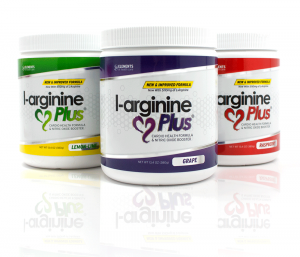Many fitness-minded people take supplements, including nitric oxide supplements. Find out how nitric oxide can help an athlete.
Improving performance is a normal goal for athletic and fitness-focused people – and nitrates may help. To learn how nitric oxide can help an athlete, keep reading below.
Nitrates vs. Nitric Oxide
 Nitrates, which are in some of the foods you eat, convert into nitric oxide once inside the body. Nitric oxide (NO) is a natural vasodilator that widens blood vessels, improving blood flow, oxygen and nutrient delivery, and more.
Nitrates, which are in some of the foods you eat, convert into nitric oxide once inside the body. Nitric oxide (NO) is a natural vasodilator that widens blood vessels, improving blood flow, oxygen and nutrient delivery, and more.
When it comes to athleticism, nitric oxide helps regulate the delivery of oxygen to your muscles by improving circulation. Not only does this increase in circulation lower blood pressure, but it leads to a decreased demand on your skeletal muscles and heart.
In addition, nitric oxide acts as a powerful antioxidant that helps neutralize free radical activity that would otherwise be harmful. It also supports the immune system and facilitates the transmission of messages between nerve cells, which helps your memory and learning capacity.
Because NO contributes to your circulation, oxygen delivery, muscle velocity, glucose uptake, power output, and muscle growth, taking NO supplements may help improve your overall exercise performance. In fact, various studies suggest that boosting nitric oxide may reduce the oxygen cost of working out and improve the function of energy-producing mitochondria.
Lastly, nitric oxide may even improve adaptation to altitudes as people who live at higher altitudes produce more NO than those who live at sea level. Some studies show that consuming dietary nitrates (like those found in red beets) or taking NO supplements may improve adaptation to higher altitudes by keeping NO levels from declining.
Taking Nitric Oxide Supplements
While nitric oxide is a natural compound, there are various factors that affect its levels in your body. For example, things like excessive stress (both physical and mental), imbalanced mouth bacteria, and a lack of dietary nitrates can lead to declining NO levels.
In addition, age and disease can also play a role in nitric oxide and cause deficiencies. In fact, by the time you turn 40, you will typically produce about half the nitric oxide you were producing at age 20. As you age, the decline increases, which is why NO supplementation may help reduce these effects.
 Whether you’re an athlete or simply someone that wants to maintain healthy nitric oxide levels, taking supplements may help. You will usually find them as l-arginine or l-citrulline supplements, as these amino acids enhance the natural production of nitric oxide.
Whether you’re an athlete or simply someone that wants to maintain healthy nitric oxide levels, taking supplements may help. You will usually find them as l-arginine or l-citrulline supplements, as these amino acids enhance the natural production of nitric oxide.
L-arginine Plus is one of the most effective nitric oxide supplements available due to its contents of l-arginine, l-citrulline, Astragin, and various key vitamins and minerals. Together, these ingredients promote nitric oxide production, which may lead to better blood flow, lower blood pressure, healthier cholesterol, and more. Give your heart and exercise performance the support they deserve by boosting your nitric oxide levels with L-arginine Plus.

